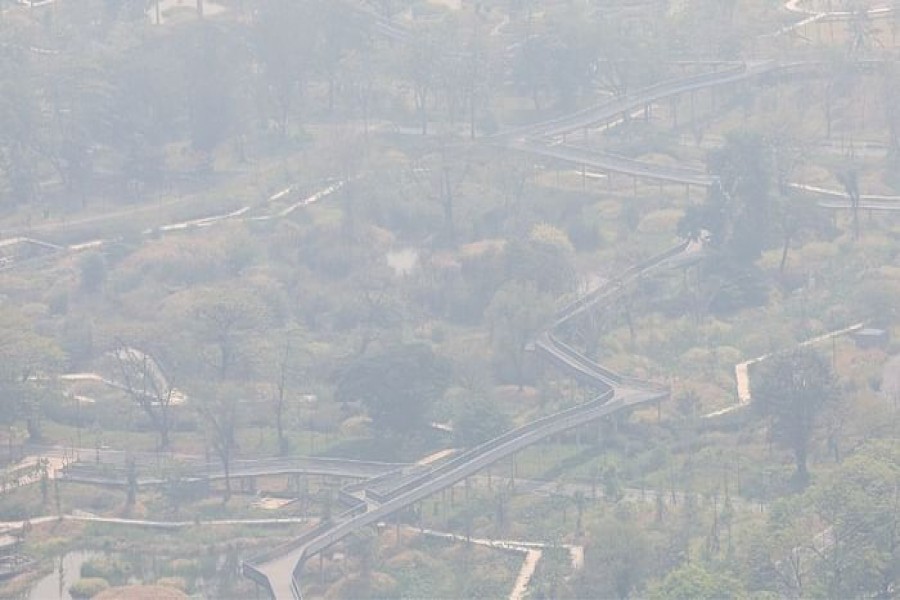Air pollution in Bangkok and neighbouring Thai provinces spiked past safe levels on Thursday, prompting authorities to urge people to stay indoors and avoid strenuous outdoor activity.
The concentration of small and hazardous airborne particles known as PM2.5 in the capital was at 14 times the level recommended by the World Health Organisation (WHO), making it the sixth-worst in the world, according to IQAir, a Swiss air quality tracking platform.
The country's pollution control department said "stagnant weather conditions" were exacerbating vehicle emissions and seasonal fires on agricultural lands.
"We have to intensify (efforts to tackle pollution) by encouraging people to work from home. For schools...they might have to avoid outdoor activities in order to prevent impacts on children's health," the department's director general said in a news conference.
Residents complained of poor visibility and having trouble breathing.
"I feel my eyes burn. I can barely see when I have to ride a motorcycle against the wind," said Kanjanaporn Yampikul, a 51-year-old motorcycle taxi rider.
The WHO recommends that average annual readings of PM2.5 should be no more than 5 micrograms per cubic metre after changing its guidelines last year, saying that even low concentrations cause significant health risks. The level in Bangkok and the surrounding areas is currently 70.5 micrograms per cubic metre.
Every year, exposure to outdoor air pollution is estimated to cause 4.2 million premature deaths, according to the WHO.


